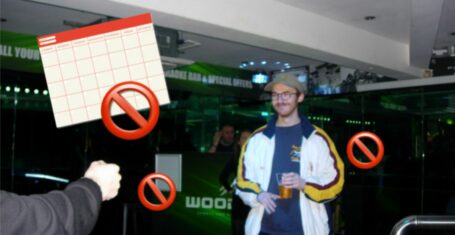
The BBC have released a documentary about a Merseyside urban legend
It’s called ‘The Man Who Squeezes Muscles: Searching for Purple Aki’
Due to his obsession with boys muscles, Manchester born Akinwale Arobieke has been part of Northern folklore since the 80s. He’s known these days for allegedly approaching men and boys in public areas, and asking them to squat for him. He also asks them if he can squeeze their muscles.
In 2006 Aki received a Sexual Offences Prevention Order, banning him from, amongst other things, touching men’s muscles and asking them to squat. He has been jailed three times for breaching this order.
Benjamin Zand, the man behind the BBC documentary, reached out to Aki, but was asked to ‘stop calling’ at his home. Zand said “this is a man who is known for harassing people, and he’s basically sent us a letter saying to stop harassing him. It’s a bit surreal.”
The documentary also spoke to Kelly’s ex girlfriend, Elaine Jordan. Jordan explained how Aki was “like a bloody ghost, because, you’re at the bus stop and there’s no one there, and the next minute he’s there in the bus stop right next to you.”
Purple Aki
Aki first gained infamy when he was convicted of the manslaughter of Gary Kelly, a 16-year-old father to be from Birkenhead.
Kelly was electrocuted and killed at New Brighton train station in 1986 after running away from Aki, who he had previously been granted a harassment order against. The order demanded Aki remain on the Liverpool side of the Mersey.
Due to a lack of evidence Aki had acted unlawfully, his charge was overturned. Aki’s defence was that he had been “standing on the platform and looking into trains.”
He received £35,000 in compensation because of ‘racial overtones’ during the trial.
Purple Aki appeared in court again in 2001, pleading not guilty to 50 counts of indecent assault on teenage boys. He was sent to jail for 13 months following threats to kill which forced a couple to flee their home.
Upon release he was imprisoned for another six years after pleading guilty to 15 counts of harassment. The judge told him “your behaviour is both strange and obsessive.”
You can watch the documentary here.









































